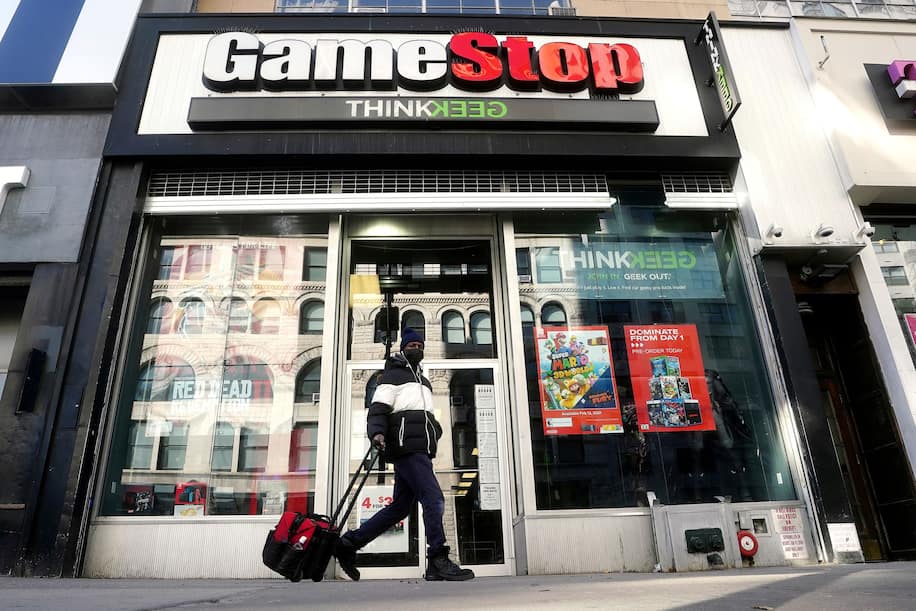Quiver Quantitative, a firm that compiles data sources including social media, regulatory filings and lobbying records, saw a surge of interest in its product from hedge funds and other institutional investors in the past two weeks, said Christopher Kardatzke, who launched the company with his twin brother last year. The company also offers a Web dashboard of data for ordinary investors.
“A lot of people want to know what retail investors are talking about,” he said. “It’s a force which is going to be influencing the markets for a while now.”
Another possibility regulators are examining is whether employees of large Wall Street firms were actively using the Reddit forum to boost their portfolios. Though posters are anonymous, r/WallStreetBets has long been populated by users who grasped complex trading concepts, shared screenshots of their Bloomberg terminals and discussed six-figure bets on single stocks, said Jaime Rogozinski, who founded the forum in 2012.
“Since it was started, it’s always attracted professionals,” said Rogozinski, who is 39 and lives in Mexico City. “It’s easy to miss them or assume they are not there because of the crude language.”
The sophistication of some forum members was evident, Rogozinski says, during an incident in late 2019 when they discovered a glitch in the Robinhood app. Redditors shared a “free money cheat code,” which they said let them borrow an infinite amount of money to perform trades. One user named MoonYachts claimed to have placed a $1 million bet with only $4,000 of his own cash before Robinhood fixed the bug.
“It’s evident that these guys knew exactly what they were doing,” said Rogozinski, who said he stopped moderating the subreddit last year.
Joey Brookhart, an analyst at a hedge fund in Denver, has monitored the subreddit for years as a form of entertainment. He said a typical post on the site is a “pump” — a message designed to get other users to drive up the price of a stock. Brookhart said he thinks most of these posts are shared by active traders but not necessarily professionals.
“They kind of realize the power of a network that’s ripe for manipulation,” he said. “There’s a pretty easy formula if you want to go pump something.”
It’s clear that Redditors helped spark the initial surge that sent shares of GameStop trading to levels far above what any rational investor would have paid for a failing bricks-and-mortar retail chain. One veteran of r/WallStreetBets who goes by the username DeepF—ingValue has evangelized GameStop since last year, when he bought about $50,000 of the stock.
Last month, as his position soared above $47 million, the user was unmasked as Keith Gill, a 34-year-old certified financial adviser in Massachusetts. Gill, who did not respond to a request for comment, has told interviewers he is not trying to pump up the price of the stock and always intended to hold his shares for the long term.
Debra O’Malley, a spokeswoman for the Massachusetts secretary of the commonwealth, said the state is examining Gill’s social media activity as it relates to his role as a registered broker and employee of MassMutual. She said the state has asked MassMutual for details about his employment, his disclosures and the terms of his departure from the company on Jan. 28.
“It’s our understanding they were unaware of his [social media posts] and likely would not have approved them,” O’Malley said in an interview.
Paula Tremblay, a spokeswoman for MassMutual, confirmed Gill no longer works at the company. She said MassMutual is reviewing the matter but declined to comment further.
Andrew Hong, an analyst for a financial software company in Toronto who bought stock options in GameStop in August, said he thinks investors on Reddit actually have a lot in common with the Wall Street investors they claim to despise: At the end of the day, they’re all trying to make money.

![]()